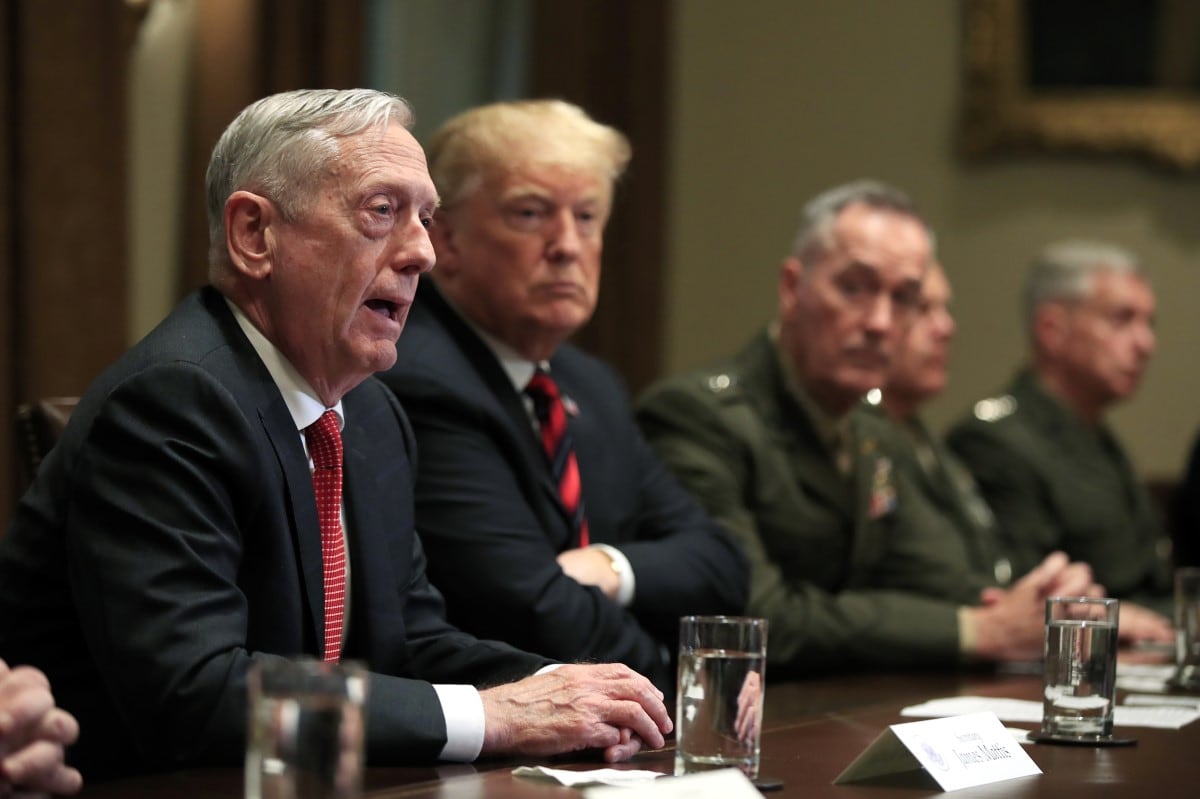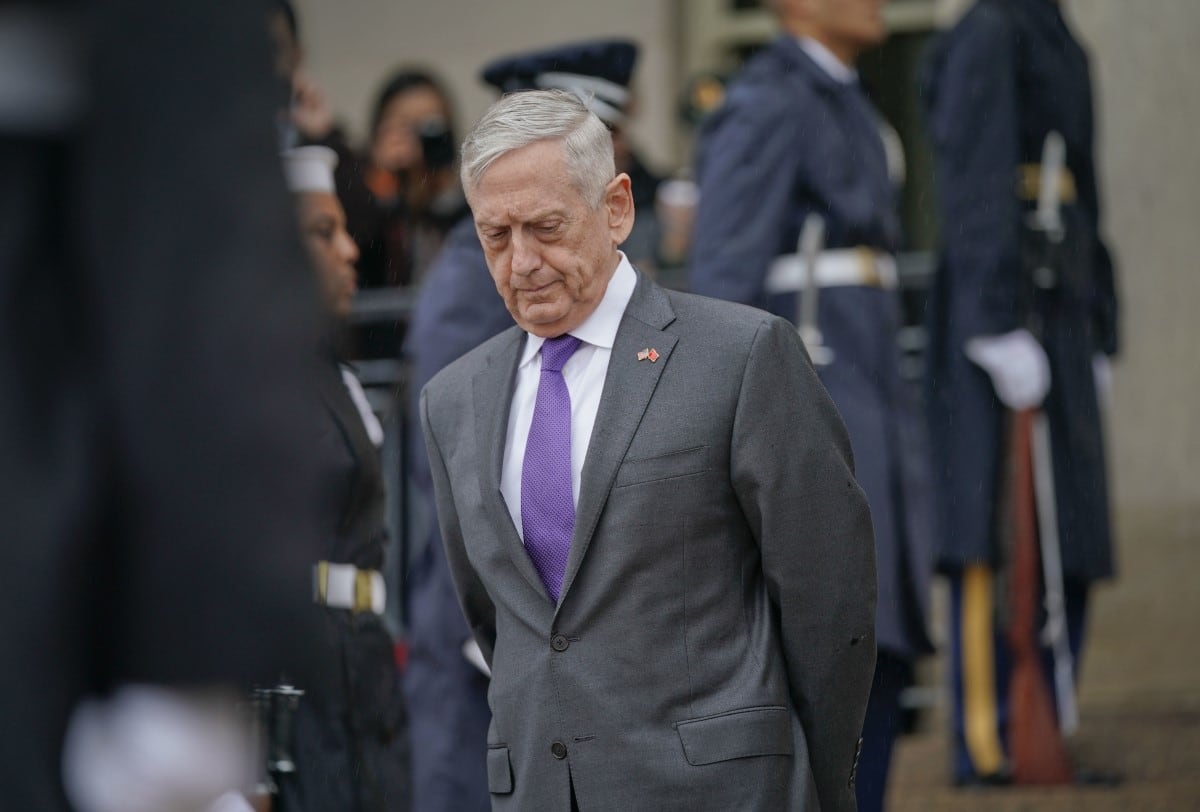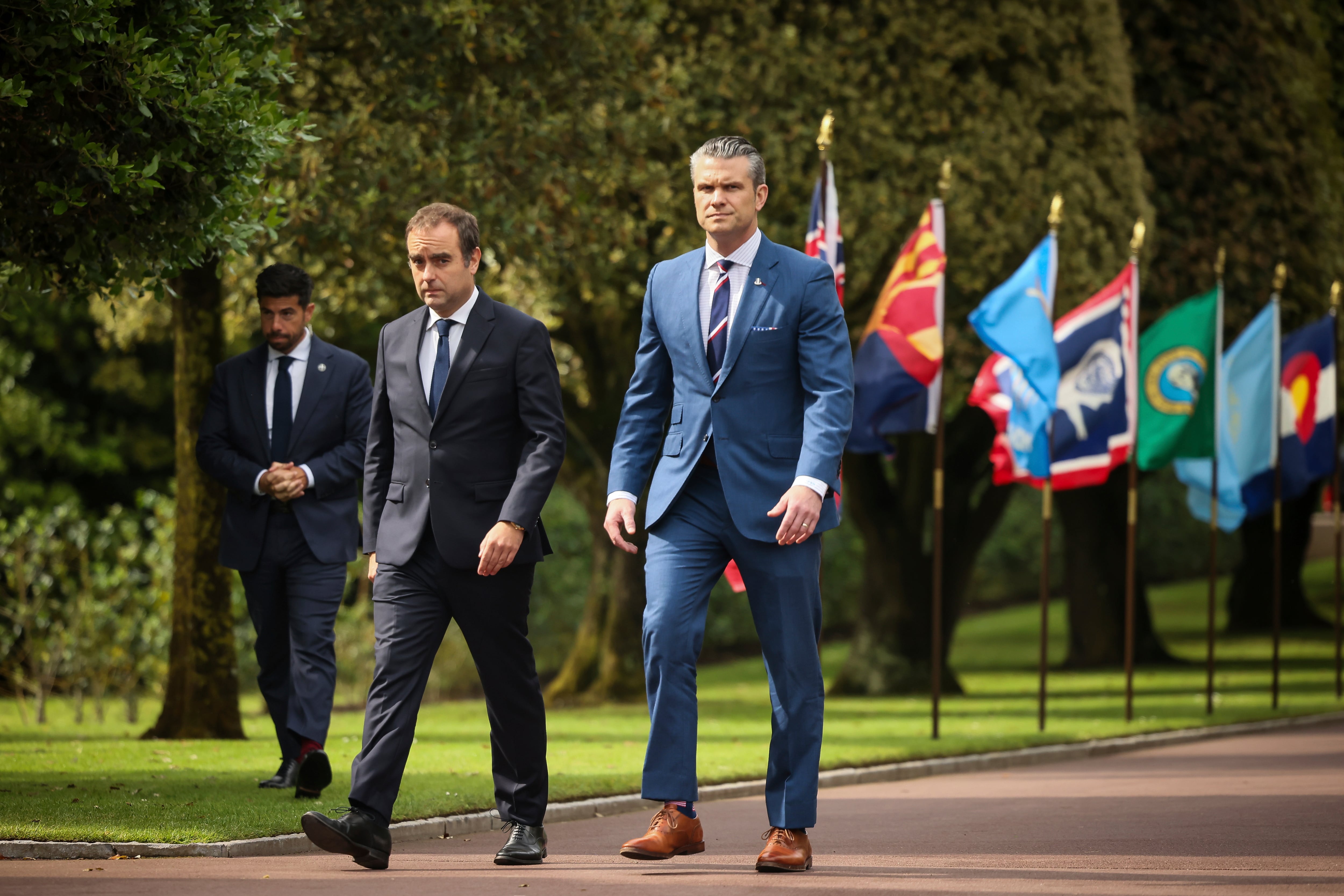In his new book “Call Sign Chaos,” former Defense Secretary Jim Mattis makes it clear early that he isn’t ready to gossip about his messy exit from President Donald Trump’s administration and “I don’t write about sitting presidents.”
Former presidents, however, are fair game.
Mattis in the volume offers praise for George H.W. Bush for his handling of the first Gulf War, blames the advisers of George W. Bush for strategic errors in Iraq, and lashes out at Barack Obama for not taking foreign security threats seriously.
“In White House meetings (with Obama officials), we constantly quibbled about (troop) numbers, seldom diving into the alternate end states and what was realistically needed to achieve them,” he wrote. “Discussions were designed to give the appearance of consultation, but they were not genuine.”
The book, out to the public Sept. 3, chronicles Mattis’ early days in the Marine Corps, his assumption of command of the 1st Battalion, 7th Marines during the first Gulf War, his time leading the 1st Marine Division in Iraq, and his promotion to (and later dismissal from) the head of U.S. Central Command.
RELATED

It makes only passing mentions of his time as defense secretary, and does not include any new information on fights with the Trump administration on a new transgender enlistment policy, deployment of troops to the southern U.S. border, or most of the other controversial decisions during those two years.
Mattis wrote that he originally intended to craft the book in 2013 to chronicle how “the Marines teach you, above all, how to adapt, improvise and overcome.” As such, the book contains numerous anecdotes from his time on the battlefield and in high-level defense planning. Here are a few of the more noteworthy revelations:
He opposed both starting and ending the Battle of Fallujah
The 2004 assault on Fallujah marked one of the bloodiest moments of the Iraq War, and Mattis wrote that he thought the move was poorly thought out.
“We were in an extremely violent political campaign over ideas, and we were trying to treat the problem of Fallujah like a conventional war,” he wrote.
Mattis said he preferred a less direct approach, working with local allies to root out terrorists in lieu of close-quarter urban combat. But after he was overruled, he demanded that the fight be seen through to the end.
Instead, after about a month, the assault was halted “although we were on the brink of at least a tactical success.” He criticized President George W. Bush’s advisers for mishandling the entire situation.
He wanted to lay a trap for Iran
Following the shoot down of a U.S drone in 2011, Mattis (then head of U.S. Central Command) wanted a strong, direct response to the Iranian military.
“I proposed to Washington that we launch another drone on the same track, position a few F-18 aircraft out of sight, and shoot down the Iranian aircraft if it attacked the drone,” he wrote. “The White House refused to grant permission.”
Mattis was ultimately relieved from that post in part because of his aggressive stance towards Iran, in contrast with Obama administration policies.
RELATED

He’s a big fan of NATO
As he did in his resignation letter from the defense secretary post, Mattis takes several indirect jabs at Trump for his stance towards traditional U.S. military allies.
“NATO is absolutely necessary for geopolitical and cultural solidarity among Western democracies,” he wrote. “Friends who share enduring historical values are needed as much today as when we stood united against facism and communism … The idea of American democracy, as inspiring as it is, cannot stand without the support of like-minded nations.”
But he also adds that European NATO countries “must contribute more” to the international security effort, a common refrain of the Trump administration.
He used Legos as a weapon of war
During the lead up to the invasion of Iraq, Mattis was worried about “traffic jams” of military personnel and assets to and from Kuwait. Some of his younger troops provided an innovative war gaming solution.
“On his own, (one lieutenant colonel) purchased 7,000 Lego blocks,” he wrote. “Each commander then dragged his sheets of Legos across a map of Iraq marked out on the parade deck, in accord with our assault plan. We watched as dozens of sheets became entangled. Presto — we had identified the choke points.”
Mattis presented the story as one of several examples of good leaders listening to younger officers’ ideas.
Leo covers Congress, Veterans Affairs and the White House for Military Times. He has covered Washington, D.C. since 2004, focusing on military personnel and veterans policies. His work has earned numerous honors, including a 2009 Polk award, a 2010 National Headliner Award, the IAVA Leadership in Journalism award and the VFW News Media award.










